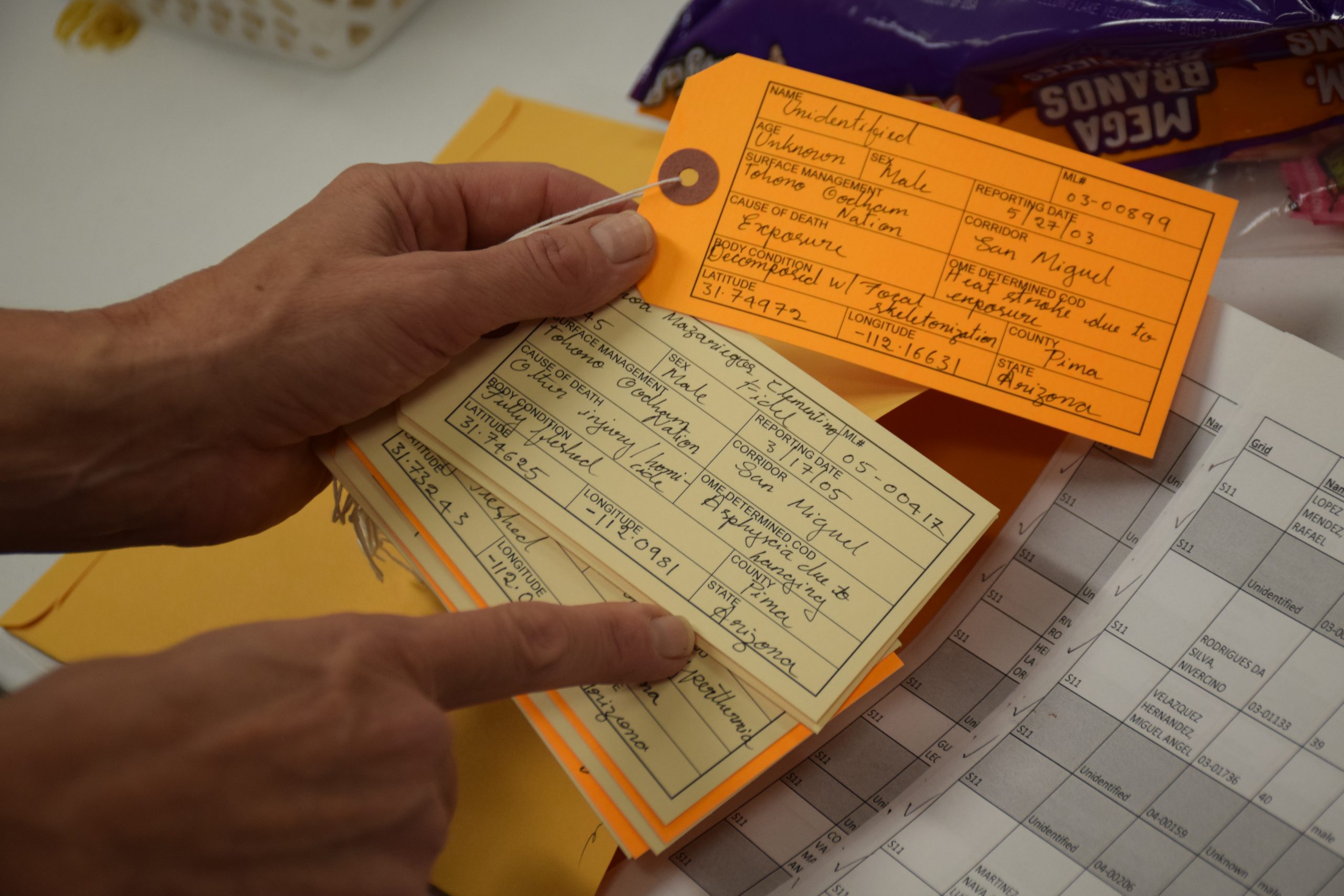Many words describe the deserts of Arizona. Scorched. Sun-baked. Blistering. Anthropology professor Jason De León has another: weapon.
Light on security, the desert is often crossed by migrants looking to find a way into the United States. With such harsh weather and at least three days worth of land to cross, many who make the trip don’t come out the desert’s other side.

And what of their bodies? This is the question that drives De León’s upcoming presentation “The Land of Open Graves: Understanding the Current Politics of Migrant Life and Death along the US-Mexico Border.” The presentation is scheduled Thursday Sept. 30 at 4 p.m. in the David H. Nutt Auditorium.
De León’s lecture will seek to dive into the question of what happens to the bodies of the dead along the U.S.-Mexico border, providing both statistics and stories that have been overlooked by American discourse surrounding immigration issues. He believes that the act of allowing migrants to die and decompose in the desert is an act of hidden violence by the state that lays long-lasting roots of generational trauma in the families of those passed. For years, the policies surrounding America’s border, including efforts to construct a border wall, have driven migrants to less secured, yet more dangerous, routes into the country, such as the Arizona deserts.
“To me, migrants dying in the desert isn’t a natural occurrence or unexpected outcome,” De León said. “It’s the direct outcome of a policy that was designed to kill people. The fact that we can have thousands of people dying in the Arizona desert and not consider it a humanitarian crisis speaks a lot to how we view the value of migrant lives.”
De León is executive director of the Undocumented Migration Project, an organization that uses multidisciplinary techniques to study and understand various aspects of unauthorized immigration attempts.
The organization takes requests from families, acting as an intermediary with the Medical Examiner’s Office in Tucson, Arizona, and several consulates. By keeping contact with these organizations, the Undocumented Migration project works to bring the remains of migrants back to their loved ones, wherever they may be.
“Our mission is to help start the healing process,” De León said. “The families we work with can be in a state of perpetual mourning. Just to be able to bury a loved one can be a monumental thing.”
This lecture tour isn’t De León’s first time around the country. De León spent many years of his youth living in Mexico and the southern United States. In his 20s he spent much of his time in a van with his hardcore punk band. As it turns out, he’s found anthropology work not much different from his days on the electric bass.
“Getting to go on tour was a lot like becoming an anthropologist,” De Leon said. “When I realized I couldn’t make a good living as a musician, I fell back on the part of the lifestyle I really liked — getting to meet people, travel, and learn new things.”
Along with the presentation, the Department of Sociology and Anthropology will also be constructing an interactive art installation in Lamar Hall as part of the Hostile Terrain 94 project. Starting Thursday afternoon, students can help label and hang toe tags along a map of the Arizona-Mexico border. These tags will display the real records and information of migrants who died crossing the border. Some will also include QR codes students can scan to read more in-depth stories from the lives of these migrants. The installation will take several weeks, and the department plans to have the installation up for most of the semester.
“You’ll see a lot of people who are the same age as our students,” associate professor of anthropology Carolyn Freiwald said. “While we’re spending a weekend out, someone the same age might be making this trip across the desert in order to survive.”
Freiwald has been working with several graduate students to ready the project for Thursday. She has access to folders containing thousands of names and details of migrants who lost their lives in the Arizona deserts. Along with preparations for the installation, the students have also been studying the data to see if there are any trends to be observed.
“Writing the toe tags, you get such an emotional connection,” graduate student Riley Freeman said.
Recent months have seen not only those from continental Mexico, but also refugees from Haiti try to make the trips through the desert. As more people put their life on the line, De León hopes to encourage conversation and empathy surrounding those attempting to find their way into the United States.
“If we can create empathy with people who seem radically different from us, I hope we can start to have discussions about what immigration reform might look like,” De León said. “The struggles migrants have are very much the struggles that we all have.”
Jason De León’s presentation will be held at 4 p.m. on Thursday at David H. Nutt Auditorium. His book “The Land of Open Graves: Living and Dying on the Migrant Trail” is available from University of California Press. His favorite hardcore punk band is Bad Brains.



























